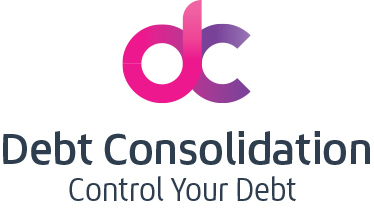Have you tried comparing debt consolidation vs debt management? Each strategy is a tool to financial freedom, but there are things that you need to know before you choose between the two.
What is a debt management plan?
First and foremost, it is not a loan. It is a plan-where you hire a debt management company to work with your creditors with the purpose of reducing not only the interest rates on your loans but your monthly payment as well. Some companies agree to waive the penalties while others simply reduce them. You will agree to an affordable payment schedule that will take around 3 to 5 years to repay in full.
Who signs up for a debt management plan?
If you want to reduce your unsecured debts and to regain control of your finances, debt management plan is the way to go. Many debt management plans include unsecured loans such as credit cards, student loans, medical bills and other loans not backed by collateral.
Is a debt management plan part of the debt consolidation plan? Oftentimes, debt consolidation lenders help borrowers design a plan to help people repay their debt consolidation loans and regain control of their finances. The debt consolidation plan helps borrowers pay off unsecured debts. If properly followed, this mixed plan can help borrowers reduce the number of payments they make each month while they practically save more money in interest and penalties.
What are the changes in my monthly repayment when I sign up for a debt management plan?
It depends on the type of debt management company you work with. If you enrolled in a credit counseling organisation, they may ask you to make monthly deposits which they will use to pay your debts according to a predetermined payment schedule agreed upon by your creditors and your counselor.
The payment schedule depends on the following factors:
•How much you can afford
•The total amount of debts owed
•Income
•Daily necessities
•Other relevant conditions (unemployment, divorce, etc.)
What are the advantages and disadvantages of a debt management plan?
If you want to create a realistic budget based on your financial goals, debts and income, good financial planning is the way to go. With good debt management, you can pay your bills on time; organise your finances and have peace of mind because creditors and collectors will not call to remind you of your defaults.

Debt Management Cons
There are many scams and fraudulent organisations charging hidden fees and using your record for identity theft or to get more money from you. It is also important to consider the fact that you may not be able to apply for additional credit while you’re still enrolled in the plan. So, before you sign up, make sure that you have enough money to sustain you before you’re finally free from the agreement.
Debt consolidation plan
Almost everyone knows that a debt consolidation plan is a way to reduce and simplify debts. But not all debt consolidation companies are equal. While debt consolidation rolls your debts into one easy-to-pay loan, some lenders charge exorbitant interest rates, hidden in low monthly payments—but the term of loan is significantly extended. But, with the right lender, debt consolidation can really help you start with a stress-free and clean slate.
Deeper analysis of Debt Consolidation
Debt consolidation simply means taking out a loan to pay off a bunch of debts—or consolidating the loan to one easy, low and convenient payment. It’s a practical option for people with high consumer debt. But if you’re not careful, the debt will grow back after some time.
It happens to people who don’t have a debt management plan. That’s why it is advisable for borrowers taking out consolidation loans to have a financial plan that would help them spend less and pay with cash, instead of using their credit cards. Building an emergency plan is also encouraged specifically because accidents happen and it’s a strong precursor to getting into debts.
Additionally, when you’re not financially stable, you may go back to maxing out your credit cards just to get the money for your urgent concerns. Before you knew it, you’re back to your old spending habits.
Is it necessary for someone who took out a debt consolidation loan to get into a debt management program?
No. what is important is for an individual to establish good money habits to stay out of debt and build wealth. If you don’t want to go right back into debt, change your behavior.
Learn more about our debt consolidation vs debt management plan and understand our strategy that offers a lower interest rate, a lower payment and an easy-to-pay debt consolidation loan. Contact our in-house loan experts today at www.debtconsolidationn.com.au!

